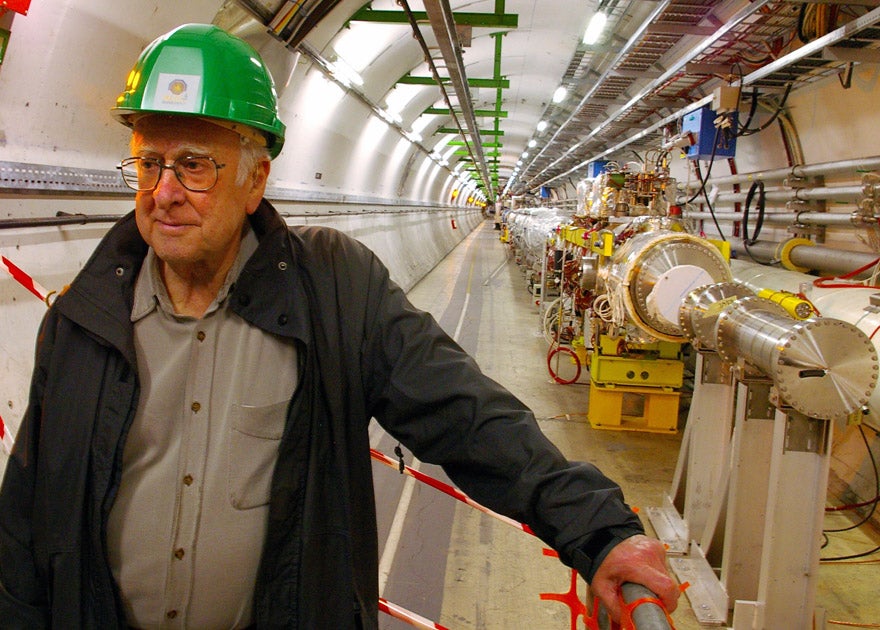Peter Higgs: There could be no more gracious or deserving winner of a Nobel Prize
The lectures he gave at university were as inspiring as what has happened today

Your support helps us to tell the story
From reproductive rights to climate change to Big Tech, The Independent is on the ground when the story is developing. Whether it's investigating the financials of Elon Musk's pro-Trump PAC or producing our latest documentary, 'The A Word', which shines a light on the American women fighting for reproductive rights, we know how important it is to parse out the facts from the messaging.
At such a critical moment in US history, we need reporters on the ground. Your donation allows us to keep sending journalists to speak to both sides of the story.
The Independent is trusted by Americans across the entire political spectrum. And unlike many other quality news outlets, we choose not to lock Americans out of our reporting and analysis with paywalls. We believe quality journalism should be available to everyone, paid for by those who can afford it.
Your support makes all the difference.It was some time during my Mathematical Physics degree at the University of Edinburgh that I first encountered Peter Higgs. Wandering through the musty corridors, one of my fellow-students elbowed me and whispered: “That’s Professor Higgs; he invented a particle!” A few years later I was sitting in Higgs’s lectures. The lecturers were challenging, but then again he was teaching some of the most advanced material we learned as undergraduates: Einstein’s theory of general relativity and symmetries.
The lectures were also inspiring, as has what has happened today: the awarding of the Nobel Prize for Physics jointly to Peter Higgs and Francois Englert of the Free University of Belgium, for their part in developing the Higgs mechanism - the theoretical underpinning which allows the fundamental particles - the particles that make up you and me - to have a mass.
These days I am back at the University of Edinburgh as a Higgs boson researcher, working with the Atlas experiment at Cern. Last year, on the 4 July 2012, the Atlas and CMS experiments announced the discovery of a new particle, a particle that looked very much like the Higgs boson. By March this year, and with more data analysed it was clear that the new particle was one predicted by Englert, Higgs, and Englert’s late colleague Robert Brout. Which is good. Because without the Higgs mechanism and the Higgs boson predicted by the theory, there would be no way to explain why fundamental particles have a mass, and without that there’s no way to explain why these particles stick together to form atoms, molecules and hence all the structure of the universe.
These days Peter Higgs is enjoying his retirement. Excited students and colleagues tell me how they have spotted him on the bus, in the supermarket, having coffee and cake in a local cafe and attending events at the Edinburgh Festival. He also does a public speaking, inspiring the next generation of scientists. He is, to a fault, a modest man. Last year at the Cern seminar announcing the Higgs boson discovery, he said he felt overwhelmed. Not for his effort; but for the efforts of the huge number of experimentalists running the Cern experiments.
Personally, I think today’s choice of recipients was the correct one. It’s harder to think of a more gracious or more deserving recipient of the Nobel Prize for Physics than Peter Higgs.
Join our commenting forum
Join thought-provoking conversations, follow other Independent readers and see their replies
Comments